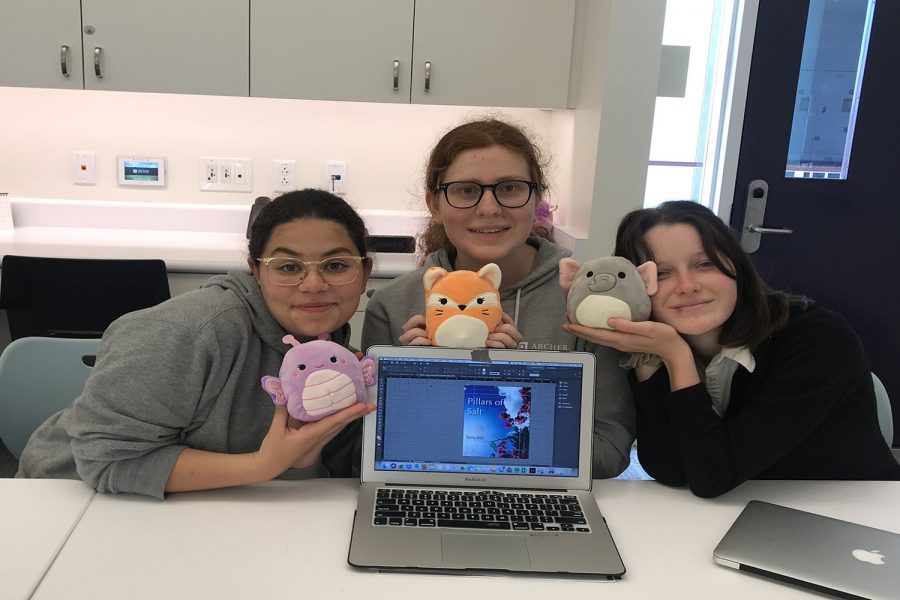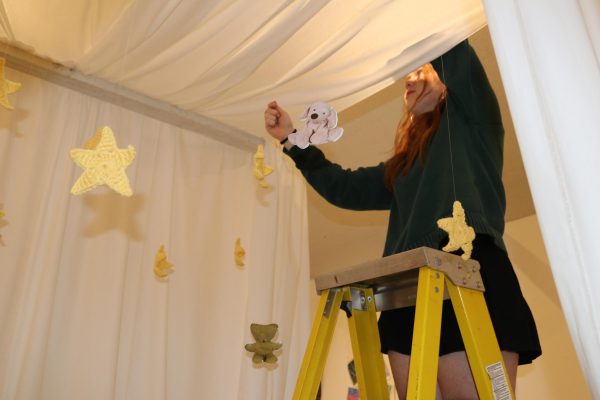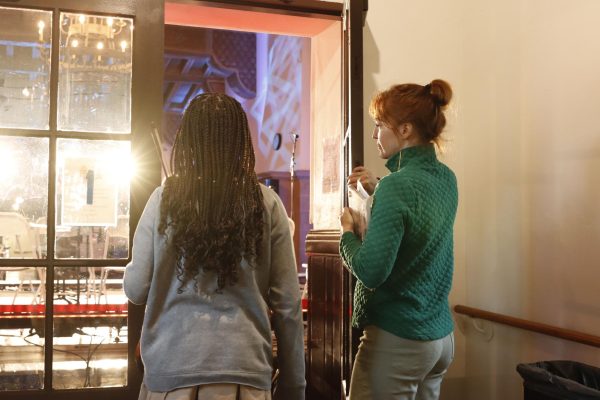‘Pillars of Salt’ highlights ‘modern, contemporary’ literature
The creative writing elective entails more than just writing poetry and short stories. The students’ collective creative process often includes lying on the floor, crying and a lot of vulnerability, junior Maddie Fenster said.
The class curates and edits “Pillars of Salt,” Archer’s literary magazine. The magazine, which is published biannually, consists of a collection of poems, short stories, pieces of scripts and photographs submitted by students. “Pillars of Salt” was the only literary magazine in California this year to receive the REALM award from the National Council of Teachers of English.
Juniors Kat Mackay and Josie Gordon, who have been in the class for two years, are co-editors-in-chief of the magazine this year. As editors, Mackay and Gordon read through every piece, edit, design and curate the magazine.
“I really enjoy putting everything together,” Gordon said. “I also love getting to read all the different things people…who aren’t in the creative writing class…write and take photos of… It’s a lot of stuff I normally wouldn’t get to see.”
Throughout the school year, Archer students create various pieces of writing, either through an academic class or on their own time. According to Mackay, “Pillars of Salt” is where students can share their works with the greater Archer community in a “non-traditional” way.
“It’s for people who love reading non-traditional literature,” Mackay said. “It’s definitely more modern and contemporary, and it’s written by students. You have so many different perspectives and it very much serves to give students a voice.”
Although “Pillars of Salt” is a key aspect of the creative writing class, Fenster said she also loves being able to work creatively with other students outside of a traditional English class.
“I love when we are able to free-write and then workshop and give each other feedback on our pieces and hear what other people think about ours,” Fenster said.
The literary magazine places posters around campus, encouraging students to submit their work and be featured in the magazine’s winter and spring editions.
“It’s a low-stress way to get your writing out there,” Gordon said. “I know I’m really scared of showing my writing, but before I was even a part of the creative writing class, I would just submit it because I could just submit it and not think about it. It’s a really good start to sharing your work.”
And if anyone still has any doubts about submitting their work, Mackay explained why she thinks people should “submit to lit.”
“I think people should submit to lit because people should put themselves out there,” Mackay said. “It’s really scary, like really scary, to do it. But if you have something that you’re writing and you don’t really know if it’s good or not, you can submit it to lit and we can give you feedback and help you become a better writer and become more confident in your voice.”

Nicki Rosenberg joined the Oracle in 2017 and was then promoted to Managing Editor as a junior. This year she will continue serving as the Managing Editor...

Molly Goldberg joined the Oracle staff in 2017 as a staff writer and was promoted Sports Editor for her junior year. This year, she is excited to fill...








